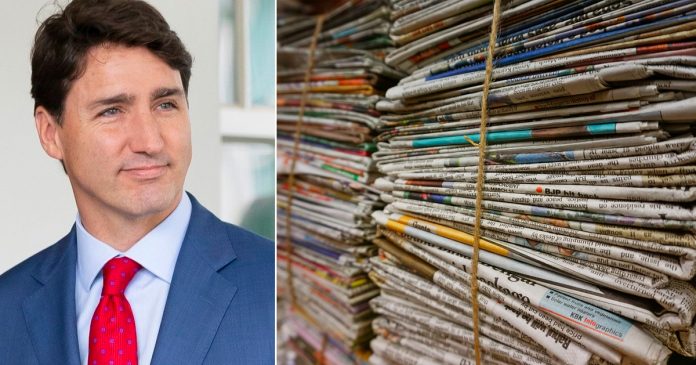The Trudeau government is citing confidentiality and “taxpayer information” to hide from the public which legacy media companies accepted money from its $600 million media bailout.
According to Blacklock’s Reporter, the Revenue Agency withheld the details of the cash payments in response to an Inquiry of Ministry tabled in the House of Commons.
“Since January 1, 2019 how much funding has each outlet received to date?” asked Conservative MP Chris Warkentin.
“Confidentiality provisions under section 241 of the Income Tax Act prevent the Agency from releasing taxpayer information,” replied Revenue Minister Diane Lbeouthillier.
Very few federal payments to media have been disclosed since the bailout was first crafted.
Winnipeg Free Press received $1 million a year in payroll rebates despite its former publisher Bob Cox sitting on the panel appointed by Canadian Heritage to design the subsidies.
Cox defended himself after True North asked him about the apparent conflict in 2020.
“Panel members did not and do not consider any applications that may involve a business conflict,” Cox said. “I was not present for any discussion of applications either from my own company, FP Canadian Newspapers, or any media companies competing in the Manitoba market. I was also not informed of the outcome of panel discussions on these matters. The newspaper editors were informed in the same way and at the same time as other applicants.”
As of last year, the corporation that owns the outlet FP Newspapers Inc has received $6.2 million in taxpayer funds in the form of COVID-19 subsidies and payroll rebates.
Grants made up a majority – or 54% – of the company’s total revenues in 2021.
Other outlets including the Halifax Chronicle Herald took the media rebates but ended up firing employees anyway. The legacy media outlet received $13,750 per employee of taxpayer funds, but by September 2020 its owner Saltwire Network Inc. had fired 111 of its staff.
Critics of the bailout including CWA Canada president Martin O’Hanlon called the program “heavily skewed” toward favoured papers.
“This is skewed heavily in favour of entrenched newspapers and their managers,” said O’Hanlon. “If this was supposed to be open and transparent, I don’t think that happened here. They chose the people they wanted to get the answers they wanted.”

